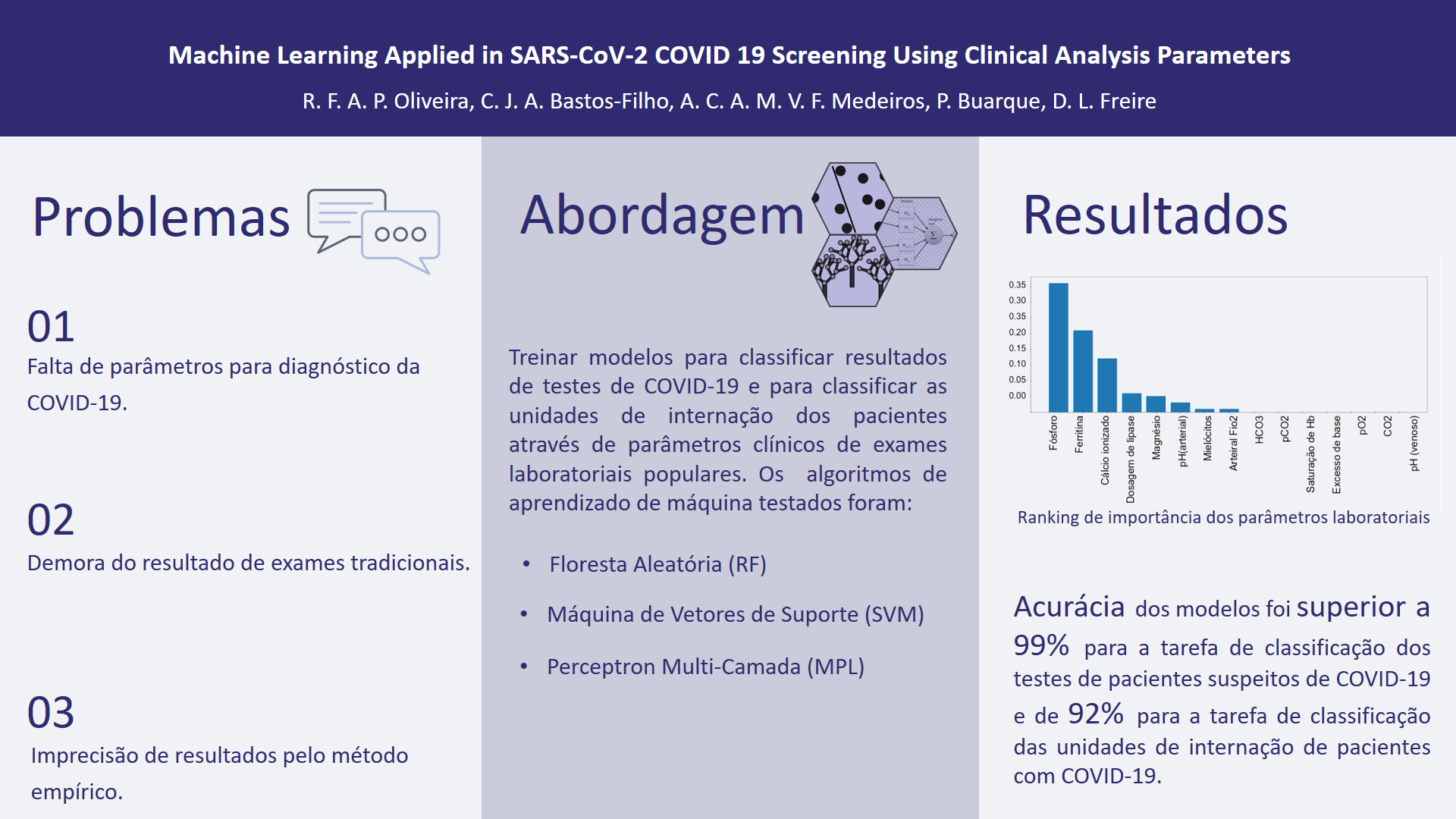Machine learning applied in SARS-CoV-2 COVID 19 screening using clinical analysis parameters
Keywords:
artificial intelligence, machine learning, artificial neural networks, random forest, multilayer perceptron, support vector machine, COVID-19 diagnostic aid modelAbstract
COVID-19 was considered a pandemic by the World Health Organization. Since then, world governments have coordinated information flows and issued guidelines to contain the overwhelming effects of this disease. At the same time, the scientific community is continually seeking information about transmission mechanisms, the clinical spectrum of the disease, new diagnoses, and strategies for prevention and treatment. One of the challenges is performing the tests for the diagnosis of the disease, whose technique adopted for the detection of the genetic material of COVID-19 requires equipment and specialized human resources, making it an expensive procedure. We hypothesize that machine learning techniques can be used to classify the test results for COVID-19 through the joint analysis of popular laboratory tests' clinical parameters. Machine learning techniques, such as Random Forest, Multi-Layer Perceptron, and Support Vector Machines Regression, enable the creation of disease prediction models and artificial intelligence techniques to analyze clinical parameters. Thus, we evaluated the existing correlations between laboratory parameters and the result of the COVID-19 test, and developed two classification models: the first classifies the test results for patients with suspected COVID-19, and the second classifies the hospitalization units of patients with COVID-19, both according to the laboratory parameters. The models achieved an accuracy above 96%, showing that they are promising to the classification of tests for COVID-19 and screen patients by hospitalization unit.
Downloads


